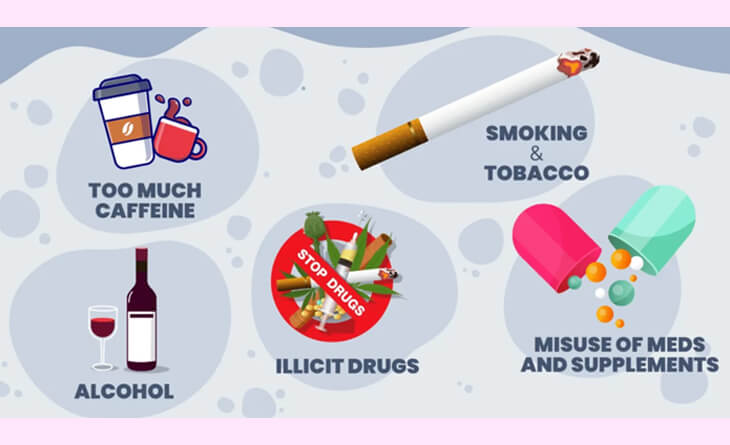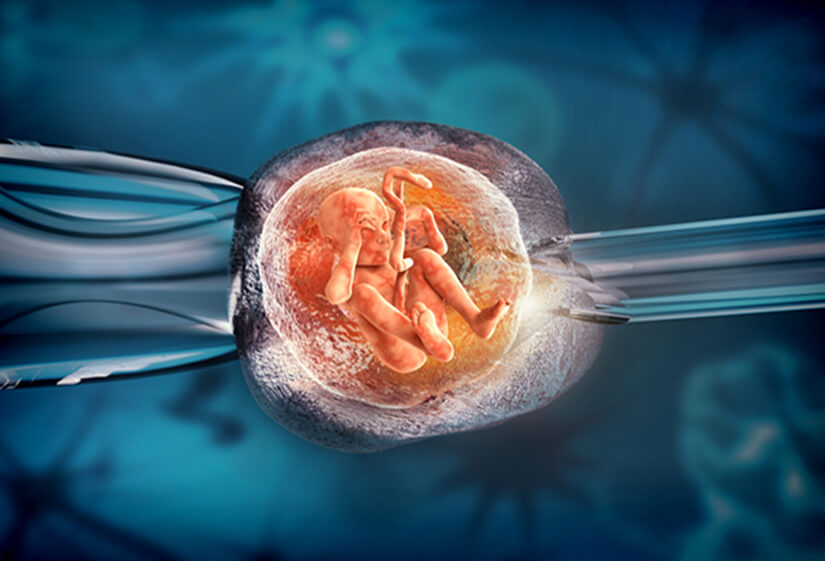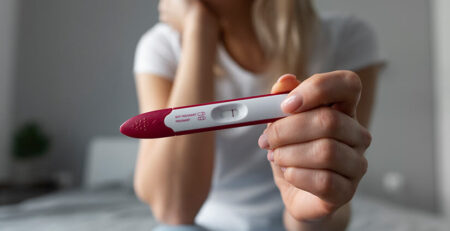What to Do And Not to Do After Embryo Transfer?
So, you just had your embryo transfer! Congrats on taking this huge step toward your family dreams.
Now comes the exciting but nerve-wracking part: the two-week wait, leaving you eager for success. You might wonder how to manage this critical phase, what actions might contribute to success, and what to avoid.
While the embryo implant and IVF success rate depends on factors beyond your control, you may try to establish a welcoming atmosphere for implantation. Let’s look at some helpful practices to boost embryo transfer success.
Things to Do After Embryo Transfer
You may have questions about what comes next after embryo transfer to promote a smooth process. Here are some proactive tips to set the stage for a positive outcome.
1- Pamper Yourself for the Next Couple of Days
While the excitement after an embryo transfer might tempt you to resume your daily routine, taking it easy in the first few days can have a big impact on your well-being and potentially increase the chances of successful implantation. This doesn’t mean you have to become bedridden, but prioritizing rest is essential.
Relaxation isn’t just about physical comfort. It’s also about calming your mind and cultivating inner peace. Aim for at least 8 hours of uninterrupted sleep at night. During the day, two hours of peaceful sleep may act as mini-retreats, allowing your mind and body to concentrate and rebalance.
2- Nourish Your Body with a Healthy Diet
After embryo transfer, nourishing your body with a well-balanced diet becomes even more crucial to improve the IVF success rate. This isn’t just about providing energy but also about creating an optimal environment for your embryo to grow.
Include colourful fruits and vegetables rich in vitamins, minerals, and antioxidants in your diet. Choose lean protein sources like chicken, fish, and beans over processed meats.
Ditch the refined grains lurking in white bread, pasta, and pastries. Instead, choose whole grains like brown rice, quinoa, and oats. Limit your intake of added sugars found in sugary drinks, desserts, and processed foods.

3- Stay Hydrated
After the delicate procedure of embryo transfer, your body needs all the support it can get to nurture and protect the potential new life within you. Staying hydrated is one of the most important aspects of establishing this supportive atmosphere.
Therefore, aim to drink at least 2-3 litres of water daily following your embryo transfer. You can also incorporate other hydrating fluids like unsweetened juices, coconut water, and milk, but remember to limit sugary drinks as they can dehydrate you in the long run.
4- Take Your Medicines As Prescribed By Your Doctor
After an embryo transfer, your body is ready for pregnancy, but it still needs the proper hormonal balance to welcome and nourish the embryo. Your IVF specialist at the best IVF centre in Delhi will tailor a medication plan to create this optimal environment based on your cycle and medical history. Your doctor may suggest medications like progesterone, estrogen, and others. Precisely follow your doctor’s instructions regarding the dosage, timing, and duration of medication intake for a smooth and successful post-embryo transfer journey.
5- Reduce Your Stress Levels
The time after embryo transfer is beautiful and exciting, but at the same time, it can also be stressful. Chronic stress, if left unchecked, can ruin your hormones, sleep quality, and overall health, harming both you and your developing baby.
Instead of letting anxiety rule your life, engage in activities that feed your mind and body. Meditation can help you concentrate and achieve inner peace, while quiet nature walks provide fresh air and an opportunity to reconnect with nature’s peaceful rhythm. Hobbies that you like, such as crafts, reading, or performing music, give a pleasant distraction from stress and allow you to tap into your creative energy.
Things to Avoid After Embryo Transfer
When it comes to IVF success rate, avoiding certain things after embryo transfer can significantly improve your chances of pregnancy and reduce stress levels. Let’s explore what you should avoid during this crucial period.
1- Consider Avoiding Strenuous Activities
After the delicate embryo transfer process, your body needs time and gentle care to allow optimal implantation. While indulging in your usual high-intensity workout routine might seem tempting, it’s best to avoid activities like aerobics, running, jogging, and cycling on slopes. These vigorous movements can put a strain on your body, potentially affecting the delicate implantation process and ultimately hampering the IVF success rate.
Instead, enjoy gentle walks. It is not only safe and soothing but also promotes blood flow and circulation, which can be beneficial for your overall health.
Returning to work can be a nice distraction from stress, but listen to your body’s needs. If your job involves heavy lifting or long periods of standing, it’s best to take some time off or adjust your duties to minimize physical demands.
2- Avoid Sexual Intercourse for A Few Days
After embryo transfer, one of the most important steps is creating an optimal environment for the tiny embryo to find its home in the uterine lining. This crucial phase of implantation establishes the base for a healthy pregnancy, and that’s why focusing on rest and avoiding certain activities like sexual intercourse for ten days is often recommended.
Because during sexual intercourse, the uterus undergoes natural contractions, which can be strong enough to disrupt the embryo’s ability to attach itself to the uterine lining properly, compromising the IVF success rate.
Think of these ten days as a time for your body to prioritize internal harmony. By minimizing external stimulation like sexual activity, you can provide a calm and stable environment for the embryo to implant itself securely.
3- Don’t Take A Pregnancy Test Immediately
The excitement after an embryo transfer is understandable, and the urge to check for pregnancy can be overwhelming. However, taking a home pregnancy test too soon is not recommended and, in fact, can lead to inaccurate results. After embryo transfer, hCG levels can be elevated due to the medications used in the procedure. This can lead to false positive results, giving you hope that doesn’t translate into a successful pregnancy. Conversely, if you test too early, your hCG levels might not be high enough for the test to detect, leading to a false negative.
To avoid any uncertainties, trust your fertility doctor’s and IVF centre in Delhi expertise. They will schedule a blood test for hCG approximately two weeks after your transfer. This timing ensures that hCG levels have had enough time to rise to detectable levels, providing a reliable and accurate result.
4- Avoid Smoking and Alcohol Consumption
As you are on an exciting yet delicate path, creating a healthy environment is crucial for you and your baby. Among the most important steps you can take is limiting cigarette smoking and alcohol consumption. These substances harm the IVF success rate.
Firstly, both smoking and alcohol are known to affect your fertility. Cigarette smoke contains harmful chemicals that can damage eggs and sperm, reducing their quality and hindering fertilization. Similarly, alcohol can interfere with hormone balance and ovulation, making it more difficult to conceive.
Secondly, even if fertilization occurs, smoking and alcohol consumption can negatively impact the embryo transfer and IVF success rate. These substances can hinder the embryo’s development and disrupt its implantation in the uterine lining. This can lead to higher chances of miscarriage or an ectopic pregnancy.
Saying no to smoking and alcohol not only protects your own well-being but also creates the optimal environment for your future child to grow.

5- Try to Avoid Infections
After embryo transfer, your body becomes more sensitive to catching infections. Therefore, you should avoid any sneaky germs that might try to bother you or your little one.
Avoid crowded places like busy stores or packed movie theatres where germs could enter your body easily. Fresh air and quiet walks are much better to freshen your mood.
Taking a break from restaurants is a good way to avoid any tummy troubles. Cooking at home lets you choose clean ingredients and keep an eye on everything. But if you have to eat out, ensure the restaurants follow the proper hygiene.
Swimming in pools, while a refreshing escape, may also pose a risk of infection after embryo transfer. Chlorine can effectively sanitize water but can irritate delicate tissues and potentially introduce bacteria. If you must indulge in a swim, opt for private pools or smaller, well-maintained facilities. Remember to shower before and after swimming to reduce the chances of infections.
Taking these small steps can greatly impact you and your little one.
Conclusion!
The two-week wait can be a challenging time, but by following these do’s and don’ts, you can create the best possible environment for a successful implantation and boost your IVF success rate. Remember, you’ve come so far, and taking care of yourself physically and mentally is the best way to prepare for the exciting chapter ahead.
If you are considering IVF treatment in Delhi, Dr. Rhythm Gupta is here to guide you every step of the way, and your little one will arrive in your arms before you know it.





